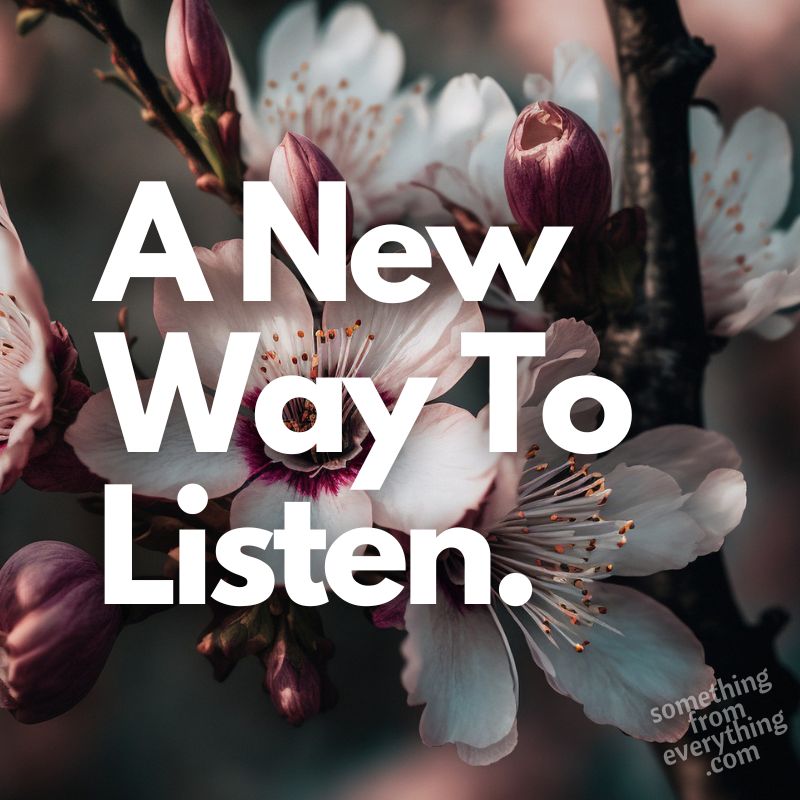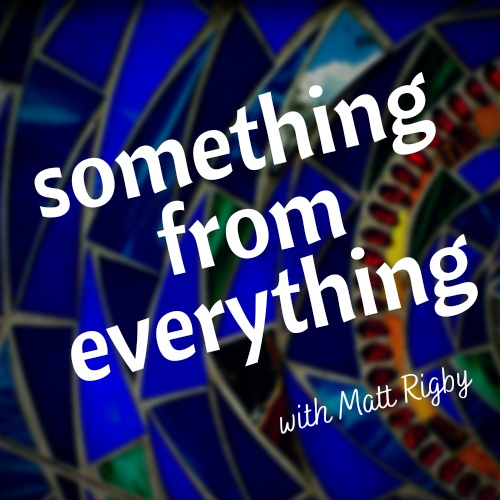
Listen. All around me is a wall of sound.
From a great distance above, we might look like wildflowers. I am in a crowd of thousands, each of us brightly coloured, each standing tall and swaying slightly, as if we were all blown by the same modest wind.
Up close it feels more like a spiritual ritual. Individuals lost in a collective. Our inspiration and expiration synced together, the palms of our hands coming together in time with the music.
I came for the concert, but I also came for this experience.To stand on the sloping hill of the natural amphitheater for hours, feeling the ache in my calves. To hold an overpriced beer in a plastic solo cup in one hand, and a melting ice cream cone in the other. To both watch and join in a performance. To add my voice to that great chorus of strangers. To sing words both familiar and strange.
The band’s first ending occurs at 9pm, but I know it’s a feint. We all know it. All around me there is shuffling, the packing up of picnic blankets and ground level camp chairs, the preparations for a hasty exit. We’re preparing, but we’re not leaving. We still haven’t heard some of the best tracks from the new album, and I know that the local bylaws shut down all live music at 10pm.
We have time.
Sure enough the band reappears shortly, and to my immense pleasure, their final four songs of the evening are all deep cuts, one all the way from their initial 2004 EP, Cherry Tree.
For their final song, the bright lighting fades to only the faintest of stage lights, and the horn section starts in low as the singer and musicians step away from their microphones. They all step to the very front, and the lead singer steps impossibly close, his feet partially over the front of the stage as he arches his back, and bellows to the amphitheater:
Oh the waters are rising, still not surprising you.
Vanderlyle crybaby cry.
Man it’s all been forgiven, the swans are a swimming.
I’ll explain everything to the geeks”
If you’re not a fan of the band “The National“, I’m pretty sure that last part gets lost in translation. But this is the song, the one each of us hopes is the last song of the evening. As I look around me, everyone is singing those lyrics. And not just mouthing the words, but bringing them forth from the deepest places in them. I saw a few eyes closed, I saw a couple crying, overcome with the emotion of the moment. For a brief while, we all spoke the same language.
Is it strange then that I have absolutely no idea what most of the words in that language mean?
And not just the words of that particular song. All that evening I had been singing along to words I knew, without a comprehensive understanding of what each song meant. And the same could be said of the lyrics of many of my favorite songwriters. As long as I’ve been listening to music, I have been practicing, performing and projecting poetry to the air that I love, and I don’t understand.
It’s possible to know all the words, to feel their resonance deep within you, and still lack a comprehensive understanding of a song. But this shouldn’t surprise me, as I could say the same about most poetry. Songwriters are poets, after all.
For most of my life, (written) poetry has been a mystery, sometimes even a frustration. Despite appearing in books, most poetry is not served by sitting down and reading quickly from start to finish. Even a short poem can be deceptively daunting. If you handed me a paragraph of prose, I could likely understand it on first read. This is almost never the case with poetry. If you are uncomfortable with ambiguity, a poem can drive you mad.
But perhaps poetry isn’t just another form of a message. Poetry (both sung and spoken) evokes the truth of that old adage, “the medium is the message”. If the overarching meaning of a song or piece of poetry eludes me, perhaps it is designed to be elusive.
A few years ago, I discovered a (now beloved) podcast devoted to making poetry more accesible. The podcast (“Poetry Unbound” with Pádraig Ó Tuama) is both brief and brilliant. Each episode, the host reads a poem slowly, then reflects on it for a few minutes, and ends the episode by reading it a second time. Interestingly, the host’s reflections on the poem were rarely explanatory. Instead they tended to be curious and personal musings about how a phrase was significant to the host, the sound of a particular section, or what imagery the author might be inviting.
Somehow, this helped unlock poetry for me. Rather than miraculously understanding the entirety of a poem, I began to appreciate the parts I didn’t understand. I would take an episode with me while walking, washing dishes, driving to work, or any number of everyday solitary tasks. I could save my favorite poems, play a short episode multiple times, or just listen to the sections where the poem was read aloud.
Unintentionally, listening to poetry allowed me to turn the dial down on my analytical mind. I didn’t have to know what each line meant, or even what the whole poem was saying. I could appreciate the articulation of the words, the intentional structure of a given line, or even a particular phrase or word that resonated.
I was embracing partial understanding. I was valuing repetition and memorization. I was enjoying structure separate from the comprehensive understanding. I was starting to listen to poetry the way I had been listening to music for years.
It’s absurd that I had never appreciated the poetry that was always the most accessible, snuck in so many of my favorite songs. But despite my ignorance, all that sung poetry had been doing something important for years. They have been teaching a new way to listen..
We know and value if something is true when we hear it, even if we can’t articulate why or how it is true. And good poetry is always uncomfortably honest. But because we don’t fully understand what we are hearing, our brain is stuck with the paradox of considering something that is both valuable, and ultimately unknown.
Our analytical mind, excellent at categorizing and judging, does not love this. Our mind likes to know the summarization of a story in advance. We like to know if a thing is good or bad, helpful or harmful, useful or useless. Good poetry just smirks, and says “good luck trying to figure out where I fit”. A line from your favourite poem or song could be any of those things. It could be a few of those things all at once.
I think it’s worth keeping a few unresolvable tensions in our mind. Remind that computing brain of ours that much of our life is difficult to neatly judge and categorize. Remind ourselves that we don’t have to fully understand a thing to enjoy it and be swept up in it. Remind ourselves that the parts of our lives are beautiful and worthy of curiosity, enjoyment and wonder, even and especially when we can’t comprehend the whole.
We can find a new way to listen. To our songs, to our poetry and to our lives.
Maybe a line from our favorite poem or song can help us think this way.
Or maybe it simply brings a smile to our face as we sing along.
(Which means it’s already working).

Leave a Reply